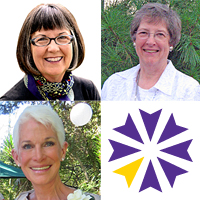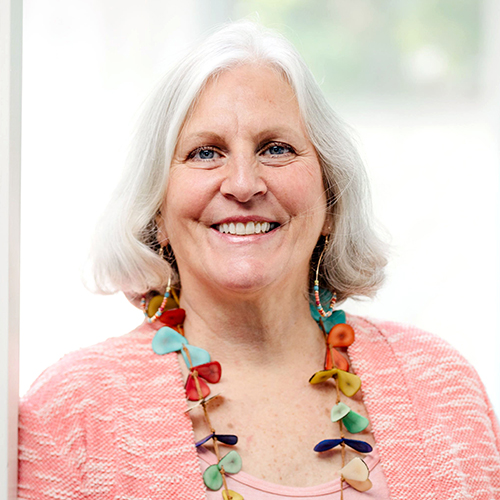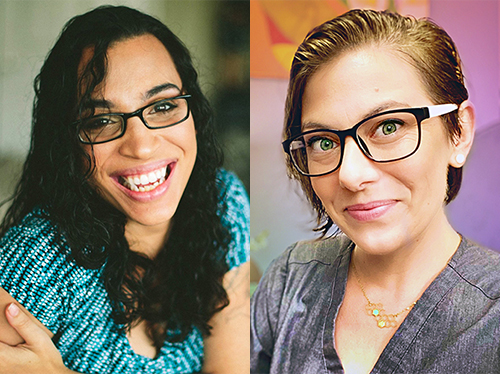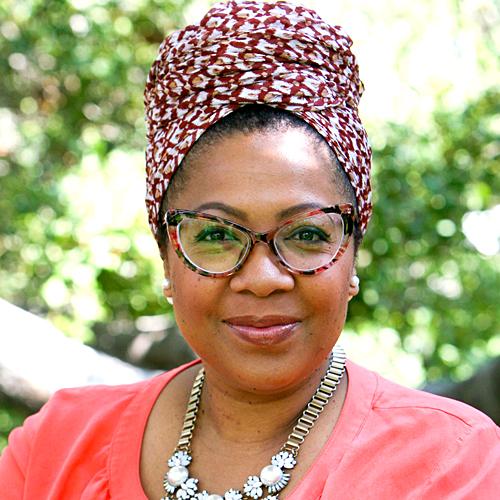 IBCLC Detailed Content Outline: Pathology / Maternal Focused CERPs - Section III B
IBCLC Detailed Content Outline: Pathology / Maternal Focused CERPs - Section III B
Access CERPs on Pathology / Maternal for the IBCLC Detailed Content Outline recertification requirements. On-demand viewing of the latest Pathology / Maternal focused IBCLC CERPs at your own pace.


Sejal is an International Board Certified Lactation Consultant (IBCLC) in private practice and an infant massage educator in Hillsboro, Oregon, USA. She combines her professional expertise with her personal instincts as a mother and a supportive team member.
She holds a Bachelors in Microbiology and Clinical Laboratory Science.
She also brings with her the following comprehensive toolkit: Certified Educator of Infant Massage, Formerly Certified in skin-to-skin care for full term infants from the United States Institute of Kangaroo Care Certified Provider of Innate Postpartum Care.
She has presented nationally and internationally for GOLD lactation, ILCA, community colleges, local lactation organizations.
As a lactation consultant, she believes that every individual needs to be educated about breast health, optimal infant feeding and how breastfeeding support is a basic human right and can impact world health globally.
She strives to help each family by continuing to learn all she can about breast health, breastfeeding ecology, breastfeeding movement and parent-infant connection using the neurobiological and infant mental health lens.
When she’s not with her clients, you can find her at home in Hillsboro, Oregon, USA, listening to bollywood music, hanging out with friends and spending time with her family.
Topic: Calm & Regulated: Rethinking Our Approach to Latch and Positioning - [View Abstract]
Topic: Teaching Infant Facial Massage to Parents to Support a Functional Latch - [View Abstract]
Evaluating feeding and observing babies at the breast is a big part of what lactation professionals do. The privilege to observe babies at the breast in private practice at a much slower pace has provided a unique observation opportunity. Each baby and parent dyad is unique and so are the challenges that come with it. The focus of this interactive workshop is to help participants become astute observers of the infant’s movements and posture before and during feeding. It will further enhance their clinical skills by looking at the big picture of how the infant's innate behaviors ensure harmonious breastfeeding ecology. This presentation will take a deeper dive into how the infant’s use of their senses, and nine steps of the breast crawl not only lead to self-attachment but it also lays down the foundation for self-efficacy and self-regulation in babies.

View Details / Enroll

View Details / Enroll
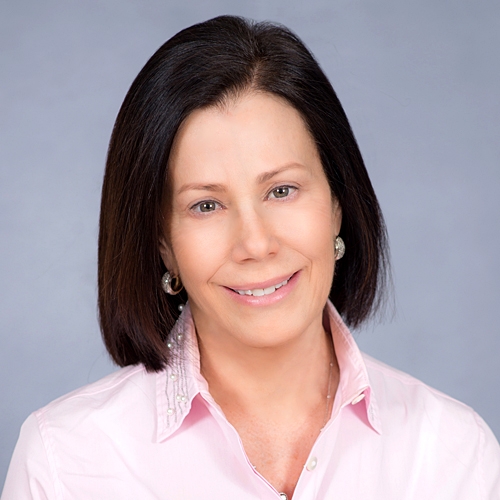
A Sensory Motor Approach to Neuromuscular Re-Education Post Frenotomy

Lori L. Overland, M.S., CCC-SLP, C/NDT, CLC is a licensed speech and language pathologist with her neurodevelopmental certification and certificate as a lactation counselor. Lori is currently working on her IBCLC under the mentorship of Dr. Tina Smilie M.D., IBCLC, and Cathy Watson-Genna IBCLC. Lori’s private practice focuses on infants, toddlers and preschool children with oral sensory-motor/feeding disorders. Lori has co-authored two books: A sensory motor approach to feeding, and Functional assessment and treatment of tethered oral tissue. In addition to her private practice, Alphabet Soup, Lori is a member of the TalkTools® speakers’ bureau, and has lectured on sensory-motor/feeding disorders around the United States and internationally. Lori holds degrees from Hofstra University and Adelphi University.
This session will focus on functional assessment and treatment of tethered oral tissue in the breastfeeding infant. Participants will understand the importance of task analysis of the motor skills to support sucking, prior to referring an infant for a release. Post op treatment has focused on active wound management (Ghaheri, B. 2017) rather than neuromuscular re-education. This approach multidisciplinary approach encourages lactation consultants to partner with body works specialists and speech pathologists to develop the underlying motor skills to support sucking.
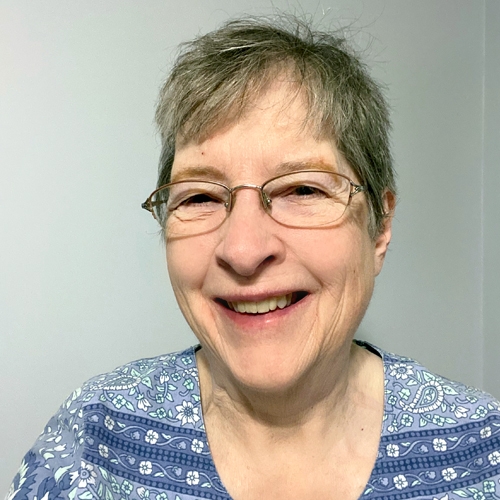

Kay Hoover became an International Board Certified Lactation Consultant in 1985. She sat for the very first exam and has taken the exam 4 times. She has worked as a private practice lactation consultant, a hospital lactation consultant at 5 different hospitals, the lactation consultant for the Philadelphia Department of Public Health, for The Center for Childhood Obesity Research at The Pennsylvania State University, and the Pennsylvania Department of Health. She currently is retired. She has presented workshops at national and international conferences and is a co-author of The Breastfeeding Atlas.
Topic: What the Books Don't Teach You: Tips and Tricks for the Lactation Professional - [View Abstract]
Topic: When There Is No Research to Back Practices: Being Life-Long Learners - [View Abstract]
Advanced Breastfeeding Case Reports will cover 4 unusual situations in a format that will allow you to use your skills to discover the ultimate outcome. One part of the excitement of our field is being detectives. These 4 cases will challenge your detective skills.
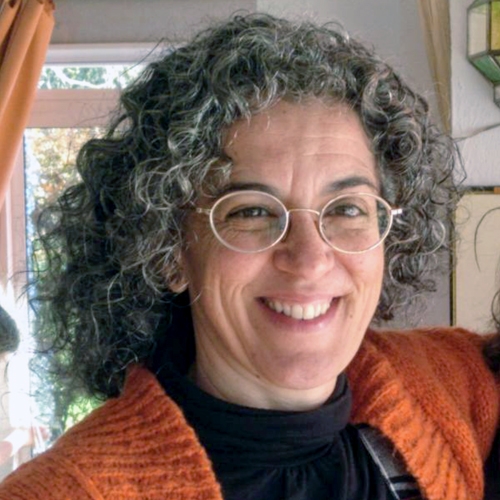
An Ecosystemic Approach to the Clinical Management of Breast and Nipple Pain

Carmela is a family medicine MD, bachelor´s degree in Public Health Education, and IBCLC since 2005. She is also a BFHI Evaluator and the co founder and past president of the Spanish Lactation Consultant Association (AECCLM). She works in a private Family Wellness Clinic, Raices, as person in charge of the lactation program, which includes two IBCLCs attending breastfeeding families and an extensive offer of breastfeeding training for health care professionals and breastfeeding peer counsellors. The team has trained over three thousand doctors, midwives and nurses from both the Spanish National Health Service and the private sector in Spain. She is a frequent lecturer at national conferences, and has also lectured internationally, both on-site and online. She is the author of several scientific papers on breast pain, mastitis and tongue tie. She is also the author of a breastfeeding/parenting book, “Amar con los Brazos Abiertos” (To Love with Open Arms). She is married to Carlos and they homeschool their four children.
Topic: Assessment and Management of Mastitis - [View Abstract]
Topic: Getting Milk Production off to a Good Start - [View Abstract]
Topic: Management of Chronic Breast Pain: Holistic Approach - [View Abstract]
Although pain is not a normal part of nursing, many mothers experience this difficulty at some point in their breastfeeding journey. It is one of the main reasons for breastfeeding consultations, and an important cause of early, undesired weaning, especially if the infant is not thriving. Assessment of pain during lactation differs significantly from other types because it is a system we must explore – not a single patient but the interaction between the mother and her infant (that is, the dyad). In this talk, an ecosystemic overview of the evaluation and management of breast and nipple pain is offered, based on current research and clinical practice. With appropriate support, the vast majority of dyads are able to breastfeed comfortably and effectively.
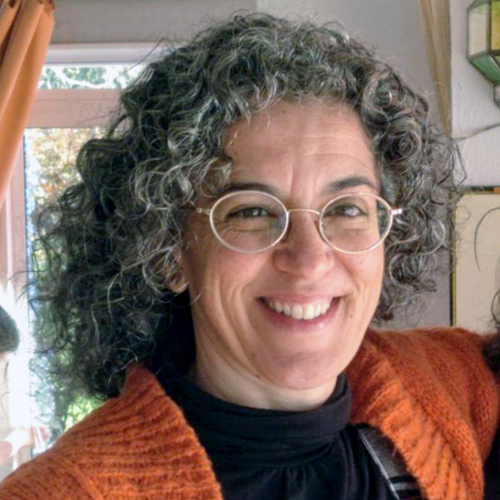
View Details / Enroll
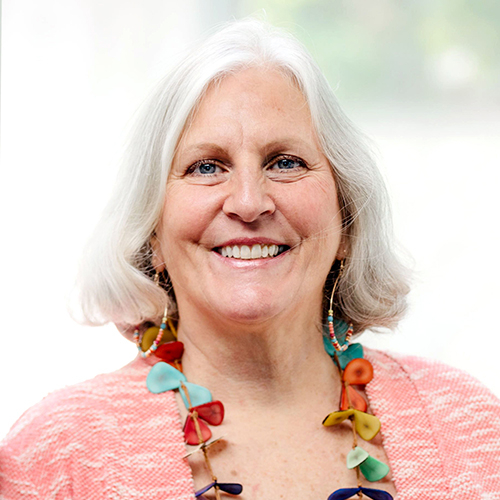
An Introduction to Structural Causes of Deep Breast Pain and Milk Stasis: Subluxations and Myofascial Trigger Points

Dr. Hazelbaker has been a therapist in private practice for over 30 years. She specializes in cross-disciplinary treatment and to that end has taken training in several modalities to best assist her clients. She is a certified Craniosacral Therapist, a Lymph Drainage Therapy practitioner, a Tummy Time™ Trainer, a Haller Method practitioner, A Pre and Perinatal Psychology Educator, a Lactation Therapist Diplomate, an International Board Certified Lactation Consultant and a fellow of the International Lactation Consultant Association.
She earned her Master’s Degree from Pacific Oaks College (Human Development specializing in Human Lactation) and her doctorate from The Union Institute and University (Psychology, specializing in Energetic and Transformational healing.)
People recognize her as an expert on infant sucking issues caused by various structural problems like torticollis, plagiocephaly, brachycephaly and tissue shock-trauma. She invented the Hazelbaker™ FingerFeeder and the Infant Breastfeeding CranioSacral Protocol™ to assist in the resolution of this type of infant sucking dysfunction.
Topic: Cranial Nerves: A Critical Component of the Process of Breastfeeding - [View Abstract]
Topic: Creating Flow: Using Lymphatic Drainage Therapy for Breastfeeding Issues - [View Abstract]
Topic: Finger Feeding: What Do We Know? What Should We Know? - [View Abstract]
Topic: Gamechangers: New studies that will change the way we think about tongue-tie - [View Abstract]
Topic: Infant Trauma: Impact on Breastfeeding - [View Abstract]
Topic: The Faux Tie: When is a "Tongue-tie" NOT a Tongue-tie? - [View Abstract]
Topic: The Impact of Bodywork on Infant Breastfeeding - [View Abstract]
Topic: What Does Torticollis Have to do with Breastfeeding? - [View Abstract]
Deep breast pain and milk stasis are often blamed on back pressure on milk ducts, incomplete emptying and fungal infection. Although these issues can be attributed to backpressure in the case of milk stasis, or "not likely to be related to" in the case of fungal infection inside the breast, the forgotten role that structural integrity plays in breast health can explain those problems that develop and persist despite proper milk removal and general health care of the breast. This presentation covers the anatomy and physiology of rib and vertebral subluxation and myofascial trigger points in generating deep breast pain and milk stasis. Several case reports illustrate the concept; proper care for resolution of these issues is covered.
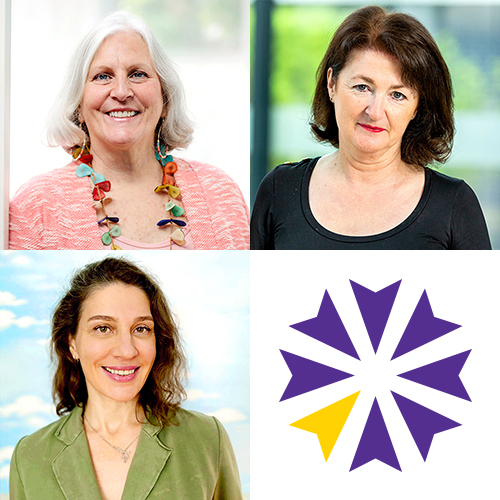
View Details / Enroll
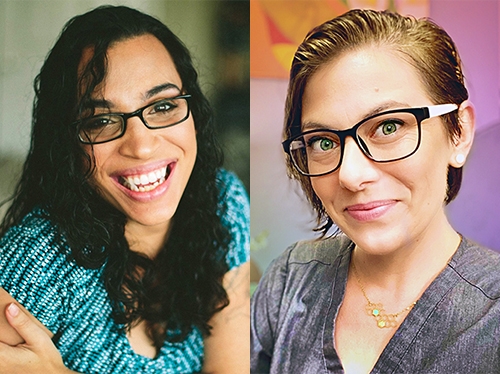

Shondra Mattos is an IBCLC (Internationally Board-certified Lactation Consultant) and owner of a Location-independent lactation practice where she provides breastfeeding and infant feeding support to families countrywide.
Shondra finds the science of lactation fascinating, and as such, she has a passion for sharing her understanding of complex lactation subjects with her colleagues and aspiring lactation students. When she's not with clients, speaking, or teaching, she spends time with her husband and daughter in Fayetteville, NC.
Bryna is a lactation consultant, mentor, educator, and birth doula in the Pacific Northwestern United States. They are active in their community as an advocate for mutual aid, reproductive justice, and reduction in barriers to care. They also own and manage an inclusive private practice. As a member of both Queer and Neurodivergent communities, offering inclusive care on every level is very important to Bryna. Their vision is to offer information and tools to providers to build a community of comprehensive, concordant, and individualized care for all families in the perinatal period.
We propose a talk that outlines the anatomy and physiology of normal infant feeding. Our talk will cover the basic functions of infant muscle groups recruited for latching, sucking, swallowing, and drinking human or artificial milk. We believe that if lactation professionals understand normal physiology as it pertains to muscle groups, they will better be able to educate and help the families our profession serves. At the end of this talk, the lactation professional will be able to establish a baseline for normal muscle function when evaluating the breastfed infant. We will use multiple learning modalities to outline and explain the essentials of muscle function in the breastfed infant.

View Details / Enroll

Beyond the Letdown: Dysphoric Milk Ejection Reflex and the Breastfeeding Mother

Alia Macrina Heise has worked in the field of lactation since 2004. She is considered the international authority on the topic of dysphoric milk ejection reflex (D-MER). She has been the forerunner in identifying, naming and investigating the anomaly of dysphoria with milk ejection reflex since 2007. She has spoken on the subject at many notable conferences, including GOLD, has given several interviews on the subject for both print and podcasts and has been published through her work on a case study about D-MER for The International Breastfeeding Journal. In 2017 she released the first book on the subject. Alia's passion and enthusiasm for the topic of D-MER are evident in the energy that she demonstrates in her presentations and the novelty of new information on a subject that is not yet well known or understood by many makes for an engaging and interesting presentation. Alia is not only a former sufferer of the lactation anomaly herself, she is also the webmaster of d-mer.org and she works closely with mothers around the world who are suffering with the condition in order to support them and to better understand the variance of the experience. She is also in frequent contact with other professionals in order to spread awareness and to support further research and investigation into the subject. Outside of her work with D-MER, she is also in private practice as an IBCLC in the Finger Lakes region of New York. She lives in a small rural town where she enjoys country living with her three children.
Dysphoric milk ejection reflex (D-MER), is not a new phenomenon. In the past, it was almost like Voldemort, the Problem That Must Not Be Named. But for over 10 years now, it has had a name and been brought into daylight. Though still not widely known or understood by many, the hypothesis of the mechanism and possible sustainable solutions are becoming better documented all the time. D-MER has been the subject of two case studies, one case series, and a qualitative research study. Two other studies as also in process at this time.
Mothers with D-MER feel, as a reflexive response with every single milk release, a wave of negative emotions ranging (depending on severity) from homesickness to hopelessness and despair, perhaps even anger and suicidal ideation. These emotions dissipate shortly after milk release and reoccur with the start of every MER, whether with breastfeeding, expressing or with spontaneous releases. Many sufferers keep the problem to themselves preferring the weaning of their baby to being incorrectly labeled as depressed or victims of abuse. Upon experiencing D-MER mothers are initially convinced the problem is physiological and not psychological, and they are correct.
As both a lactation consultant and a sufferer of D-MER, I first named and identified D-MER over 10 years ago. Now, through the case studies that have been done, collaboration with other medical and breastfeeding care providers, and the collection of information from the anecdotal reports from over 1,000 mothers, there is now a foundation of understanding of D-MER. Though the evidence base for D-MER is still mainly unestablished at this time, there are many professionals always working to bring evidenced-based information to the study of human lactation. This is exactly what the slow work and understanding of D-MER is about; the process of bringing new information into the light for further research and understanding.
In the PowerPoint presentation that I have to present, I discuss how D-MER presents, its tell-tale manifestation, and its spectrum and intensities. The presentation also explains the currently proposed mechanism of the MER anomaly, how health care providers can identify a mother it D-MER and how to help and support mothers with the condition.
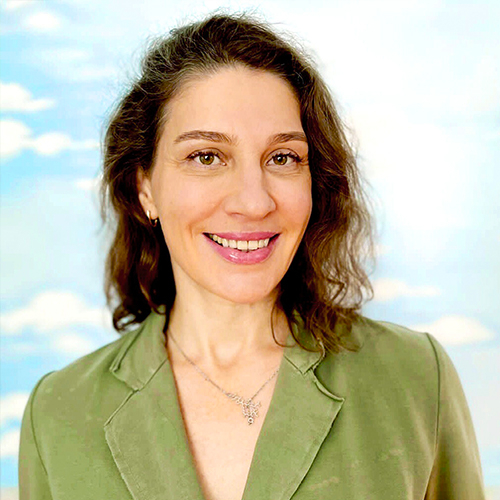

Tatiana was born in Moscow, Russia and graduated from Lomonosov Moscow State University in 1991 with a Master’s degree in Art.
Since 2007 Tatiana has her own lactation consultant in private practice. She first became an IBCLC in 2011. From 2012-2019 Tatiana served as the IBLCE Country coordinator for Russia and from 2012-2021 as the Project coordinator for a “New degree” for educational courses in LC.
Breastfeeding biomechanics is a field that combines physics with knowledge from biological and medical sciences, psychology and cultural studies. A better understanding of the nursing mechanics will help us to recognize which cultural concepts of feeding posture may be associated with ergonomic risk factors for the parent's body. Breast engorgement and nipple pain should not be taken as an inevitable part of the early postpartum period. With the help of the «Mindful latching» method (techniques for concentrating parents on their own sensations of postures and movements) we can control the ergonomic risks of repetitive movements. If we still have to deal with engorgement, «3D Inertial hand expression» method (the synthesis of traditional practices and modern knowledge of breast biomechanics) could be helpful. Breast biomechanics focus on how forces act on the breast structures and fluids and how the breast tissues respond to these forces.

View Details / Enroll

Breaking the Silos: Understanding the Connections Between Labor Interventions and Lactation

Janiya Mitnaul Williams, MA, IBCLC, RLC, CLC is an International Board Certified Lactation Consultant, Registered Lactation Consultant, and Certified Lactation Counselor who has been supporting nursing families since 2007. She holds degrees from North Carolina Agricultural and Technical State University and Union Institute and University in Speech-Language Pathology and Audiology and Health & Wellness with a concentration in Human Lactation respectively.
Janiya is the Program Director of the Pathway 2 Human Lactation Training Program at N.C. A&T SU (NCAT P2P). She also works for the Women’s and Children’s Center at Cone Health as the Co-Coordinator for Doula Services. In 2015 she created Mahogany Milk Support Group in order to promote, encourage, and normalize nursing for Black and Brown families. That same year, Janiya also became the first person of color and Non-Registered Nurse to be hired as a Lactation Consultant for Cone Health’s hospital system.
She is most passionate about creating diversity, equity, and inclusion within the field of Lactation in order to promote better health outcomes for Black and Brown, marginalized, and underprivileged families because they have the greatest lactation barriers to overcome.
Birth and breastfeeding/chestfeeding are intimately woven together although many separate the two. One's labor and birth process however, have a direct impact on how their nursing journey begins. Naturally, most infants can independently progress through the fetal to neonatal transition and produce a baby-led latch within the first hours of life. However, the process of birth is often unpredictable and many birthing families are regularly faced with common or unexpected labor interventions that can adversely affect milk supply and the initiation and receptivity of breastfeeding/chestfeeding for the infant. Some of the most common interventions include: IV fluids, induction of labor, epidurals, and continuous electronic fetal monitoring. These maternity care practices come with unintended consequences that directly impact lactation. Furthermore, studies indicate that many of these interventions are done more for convenience as opposed to medical reasoning. In order to promote, protect and support breastfeeding/chestfeeding for birthing families, providers and other members of the healthcare team should be encouraged to work in tandem; using effective communication and facilitating open dialogue. By including families in every aspect of their birth and postpartum period, self-efficacy and confidence is increased and trust is developed, setting the foundation for increased initiation and duration of human milk feeding.
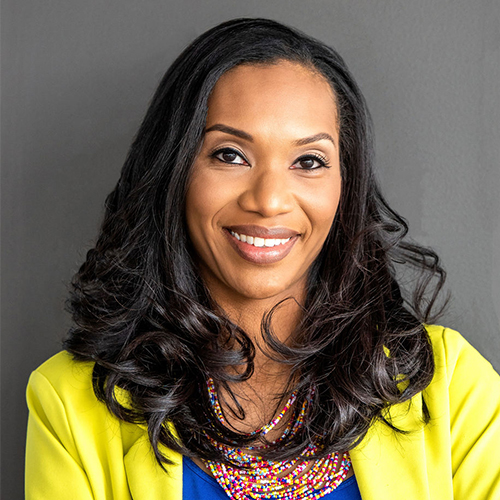
View Details / Enroll
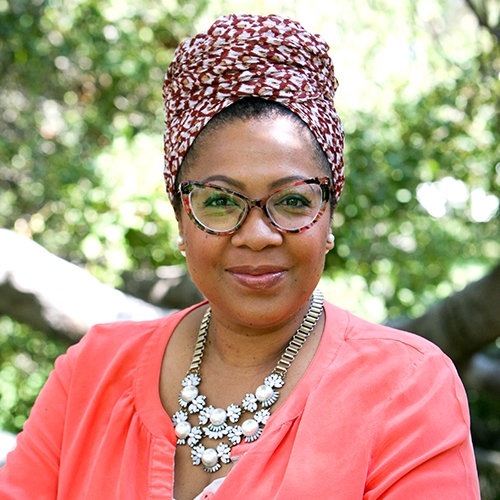

Nekisha Killings is an equity strategist, internationally board-certified lactation consultant, and maternal and child health advocate who speaks, teaches, and facilitates on topics related to equity and dismantling bias across various sectors.
When she is not home educating 4 future world changers, she acts as a Director of Equity, Inclusion and Belonging at Lactation Education Resources and consults organizations on creating and implementing strategies to better support marginalized communities.
Nekisha holds a Masters in Public Health and penned the chapter titled Cultural Humility in the latest Core Curriculum for Interdisciplinary Lactation Support text. Nekisha is on a mission to normalize brown breasts and nipples in health education, thereby better equipping healthcare providers to accurately assess and treat people of color.
Nekisha's work is rooted in a compassion and candor that could only have been cultivated in years of supporting new parents during their first days of parenthood. Nekisha is an active duty military spouse who has been awarded the Spouse of the Year designation for her volunteer efforts supporting families.
Topic: Breast Assessment and Non-White Skin Tones - [View Abstract]
Topic: BreastSide Manner: A Patient-Centered Approach to Lactation Support - [View Abstract]
Topic: Marching Orders: Developing Practical and Impactful Care Plans - [View Abstract]
Is a red spot always a key indicator of mastitis? What about the deep purple trademark of vasospasm? How does eczema present on non-white skin? Performing a standard breast assessment may cause clinicians to overlook or misidentify key indicators of maladies in patients that are not fair skinned. Learn how you can improve your assessments and familiarize yourself with other ways to identify common conditions in patients populations that may not have been featured in your textbooks.



